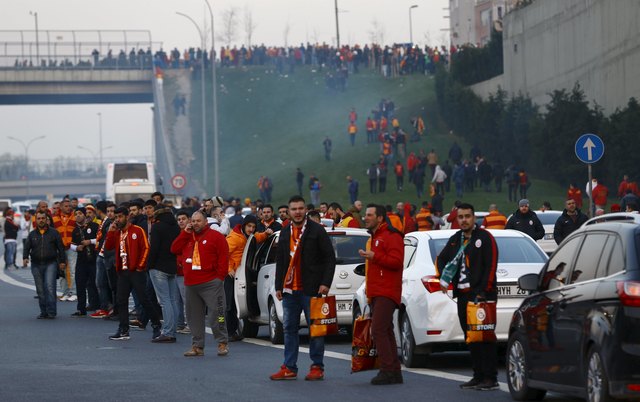Turkey says Istanbul suicide bomber was member of Islamic State

ISTANBUL – A Turkish member of the self-declared Islamic State militant
group was responsible for Saturday’s suicide bombing in Istanbul that killed
three Israelis and an Iranian, Turkey’s interior minister said.
The attack in Istiklal Street, Istanbul’s most popular
shopping distict, is the fourth such bombing in Turkey this year and the second
one by Islamist militants. In January a suicide bomber blew himself up in
Istanbul’s historic heart, killing 12 German tourists.
NATO-member Turkey is on heightened alert after the
bombings, which have killed more than 80 people. A soccer match between
Istanbul rivals Fenerbahce and Galatasaray was cancelled on Sunday and the
stadium evacuated on what appeared to be a security threat.
Interior Minister Efkan Ala identified Saturday’s bomber
as a man from a southern Turkish province, adding that five people had been
detained so far in connection with the blast.
“We have determined that Mehmet Ozturk, born in
1992 in Gaziantep, has carried out the heinous attack on Saturday in Istanbul.
It has been established that he is a member of Daesh,” Ala told a news
conference broadcast live on television, using an Arabic acronym for Islamic
State.
Israel has confirmed that three of its citizens died in
the blast. Two of them held dual citizenship with the United States. An Iranian
was also killed, Turkish officials have said.
Israeli Prime Minister Benjamin Netanyahu has said
Israel is trying to determine whether its citizens were deliberately targeted.
Eleven of the 36 wounded were Israelis.
In his first public appearance since the bombing,
President Tayyip Erdogan said Turkey would not give in to militants.
“We will never surrender to the agenda of terror.
We will defeat the terrorist organisations and the powers behind them by
looking after the unity of our nation,” he said.
SPATE OF BOMBINGS
As part of a United States-led coalition, Turkey is
fighting Islamic State in neighbouring Syria and Iraq. It is also battling
Kurdish militants in its southeast, where a two-and-a-half-year ceasefire
collapsed last July, triggering the worst violence since the 1990s.
The spate of bombings has raised questions about its
ability to protect itself from a spillover of both the Syria and Kurdish
conflicts.
An offshoot of the militant Kurdistan Workers Party
(PKK) claimed responsibility for two recent car bomb attacks in the capital
Ankara that killed a total of 66 people. Turkey sees the Kurdish insurgency as
fuelled by the territorial gains of Kurdish militia fighters in northern Syria.
Police were questioning the father and brother of the
alleged bomber Ozturk and had determined his identity by checking a DNA sample
from the blast scene against one taken from his father, security sources said.
Ozturk’s family reported him missing after he went to
Istanbul in 2013, the security sources said.
Police were on also on alert due to concerns about
potential clashes between security forces and Kurdish militants during a spring
festival this weekend that is widely celebrated by Kurds.
The United States and some European embassies had warned
their citizens to be vigilant before the Newroz celebrations.
Interior Minister Ala said authorities had put 200,000
members of the police and gendarmerie on duty, some of whom would set up
checkpoints. Hundreds of bomb control devices had also been dispatched.
But he acknowledged the difficulty of catching lone
suicide bombers.
“We have to take all measures to prevent any
terrorist acts,” he said. “But sometimes there are suicide bombings
that are hard to prevent.”
– Reuters

